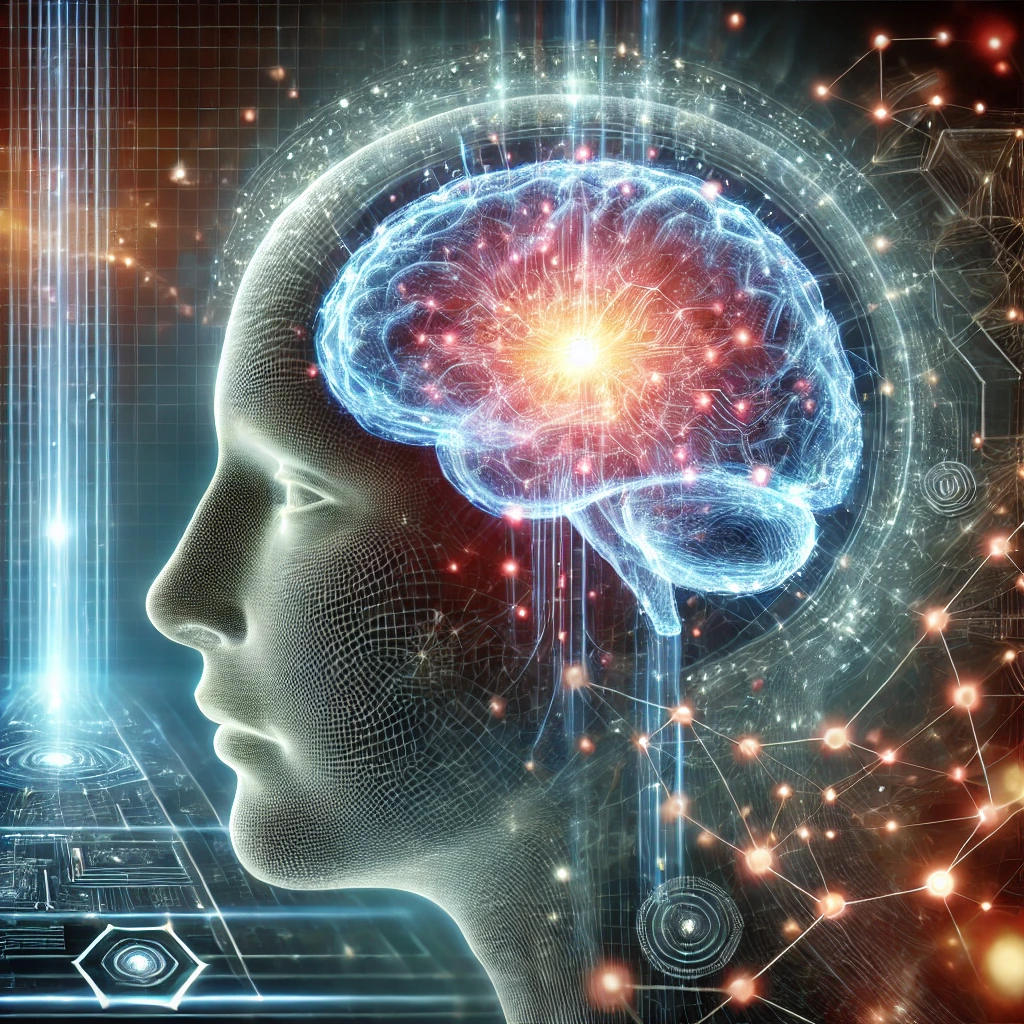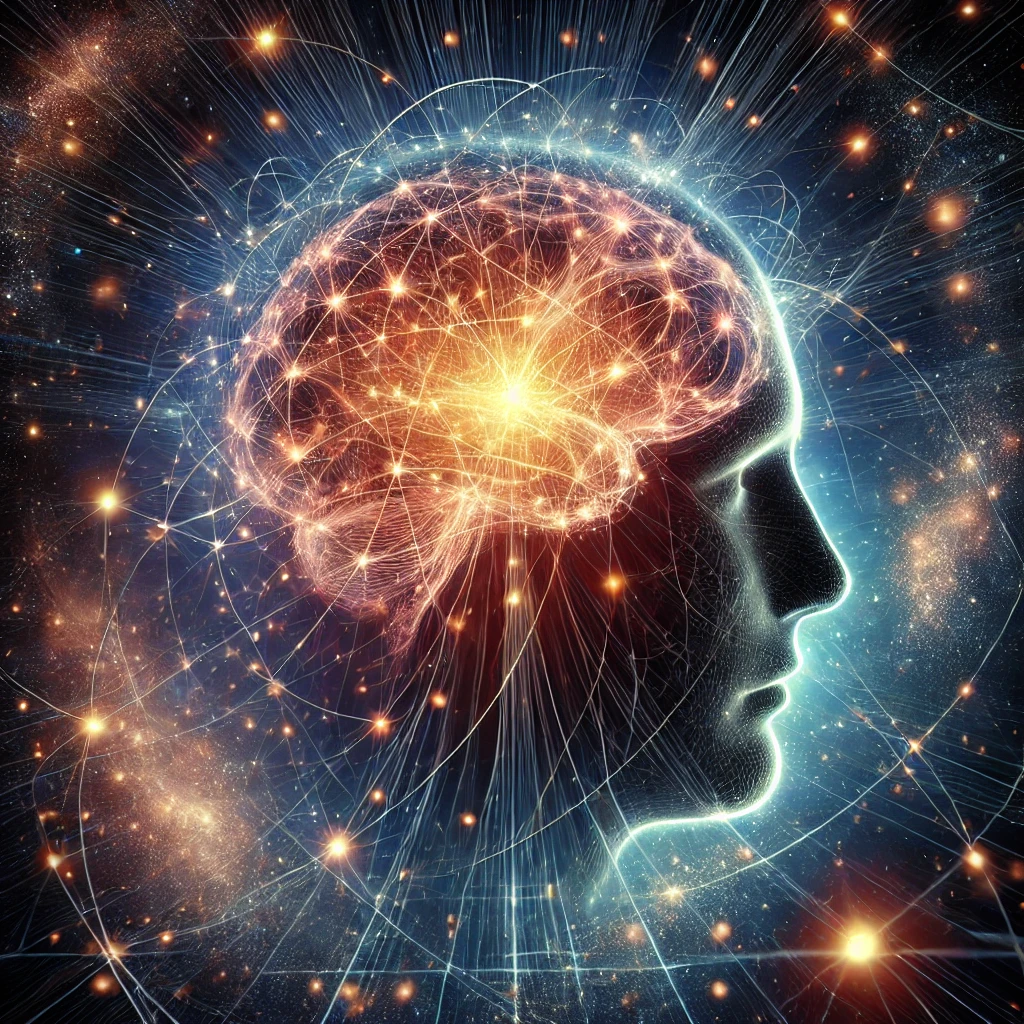Quantum mechanics and consciousness are two of the most intriguing and profound subjects in modern science. Since its inception in the early 20th century, quantum mechanics has revolutionized our understanding of the microscopic world, leading to groundbreaking innovations and new perspectives on reality. This essay explores the fascinating connection between quantum mechanics and consciousness, delving into principles like wave-particle duality, superposition, and entanglement, and examining their relevance to human consciousness and the manifestation of reality. We will also discuss philosophical interpretations and criticisms, as well as potential applications in psychology and neuroscience.

The Principles of Quantum Mechanics and Consciousness
Wave-Particle Duality in Quantum Mechanics
Quantum mechanics is built on the principle of wave-particle duality. This principle states that elementary particles, such as electrons and photons, can exhibit both wave-like and particle-like properties. This dual nature is not exclusive to subatomic particles; even larger objects like molecules can display wave-particle duality.
The famous double-slit experiment demonstrates this principle. When electrons or photons are sent through two slits, an interference pattern consistent with wave behavior is observed. However, when individual particles are detected, they behave like particles. This duality challenges classical notions of particles and waves and implies that reality is not as straightforward as we once believed.
Superposition and Its Implications for Consciousness
Superposition is another fundamental principle of quantum mechanics. It states that particles can exist in multiple states simultaneously until they are measured. Once a measurement is made, the particle collapses into a single state. This phenomenon suggests that reality exists in a superposition of all possible states until observed. This has profound implications for our understanding of reality and consciousness.
Schrödinger’s Cat Thought Experiment
The Schrödinger’s cat thought experiment illustrates the concept of superposition. In the experiment, a cat is placed in a sealed box with a radioactive atom, a detector, and a vial of poison. If the atom decays, the detector releases the poison, killing the cat. According to quantum mechanics, until the box is opened, the cat exists in a superposition of both alive and dead states. This paradox raises questions about the role of the observer in determining reality.
Quantum Entanglement and the Interconnectedness of Reality
Quantum entanglement is a phenomenon where two or more particles become connected in such a way that the state of one particle instantaneously affects the state of the other, regardless of the distance between them. This instantaneous connection, which Albert Einstein famously called “spooky action at a distance,” challenges the classical understanding of space and time.
Entanglement has been experimentally confirmed. Its implications have led some scientists and philosophers to argue that our universe may be interconnected at a deeper level than previously assumed.

Quantum Mechanics and Consciousness Theories
The Observer Effect in Quantum Mechanics and Consciousness
The role of the observer in quantum mechanics has been a subject of much debate. The Copenhagen interpretation, one of the most widely accepted interpretations of quantum mechanics, posits that the observer is responsible for the collapse of the wave function and the manifestation of a single reality. This interpretation implies that consciousness plays an essential role in determining reality.
The observer effect has given rise to various philosophical questions and alternative interpretations of quantum mechanics, such as the many-worlds interpretation and the de Broglie-Bohm pilot-wave theory.
The Many-Worlds Interpretation and Its Impact on Consciousness
The many-worlds interpretation (MWI) is an alternative to the Copenhagen interpretation. It suggests that all possible outcomes of quantum measurements exist in separate, non-communicating parallel universes. In this view, there is no need for wave function collapse, and the role of the observer becomes less significant. Instead, the act of measurement simply causes the observer’s reality to branch into multiple parallel realities.
While the MWI removes the apparent influence of consciousness on reality, it raises further questions about the nature of reality itself. If all possible realities exist, what determines our subjective experience of a particular reality? How do we navigate and manifest our desired reality within this vast multiverse?
The De Broglie-Bohm Pilot-Wave Theory: A Deterministic View of Quantum Mechanics
The de Broglie-Bohm pilot-wave theory, also known as Bohmian mechanics, is another alternative interpretation of quantum mechanics. In this theory, particles are guided by a “pilot wave” that determines their trajectories. The wave function never collapses, and particles have definite positions and velocities at all times, even when not observed. The role of the observer in this interpretation is minimal, as the pilot wave governs the behavior of particles.
While the pilot-wave theory provides a deterministic account of quantum phenomena, it does not directly address the role of consciousness or the process of manifesting reality. However, it does offer an alternative view of reality that challenges the observer-dependent nature of the Copenhagen interpretation.
Manifesting Reality: The Role of Consciousness in Quantum Mechanics
Quantum Mechanics and the Mind: Exploring Consciousness
As discussed in the previous sections, various interpretations of quantum mechanics suggest that consciousness may play a role in shaping reality. This idea has led to the proposal of theories that explore the relationship between quantum mechanics and the human mind.
One such theory is the Orchestrated Objective Reduction (Orch-OR) theory, proposed by Sir Roger Penrose and Dr. Stuart Hameroff. Orch-OR suggests that consciousness arises from quantum processes within microtubules in the brain. In this view, consciousness is a fundamental aspect of the universe, and our subjective experiences are deeply intertwined with the quantum fabric of reality.
Manifesting Reality through Intention: The Quantum Perspective
The potential connection between quantum mechanics and consciousness has inspired the idea that we can manifest our realities through focused intention. Proponents of this concept argue that by harnessing the principles of quantum mechanics, individuals can influence their experiences and outcomes in life.
While empirical evidence for this idea is limited, some studies have explored the effects of intention on physical systems. For example, the famous experiments conducted by Dr. Masaru Emoto on water crystals demonstrated that human intention could influence the formation of ice crystals. This suggests that our thoughts and intentions may have a tangible impact on the physical world.
Implications and Criticisms
Implications of Quantum Mechanics and Consciousness for Psychology and Neuroscience
The relationship between quantum mechanics, consciousness, and manifesting reality has implications for various fields, including psychology and neuroscience. If consciousness indeed plays a role in shaping reality, it may provide a foundation for understanding phenomena such as the placebo effect, the power of positive thinking, and the impact of mindfulness practices on well-being.
Furthermore, the exploration of quantum processes in the brain may lead to advancements in our understanding of neurological disorders and the development of novel treatments.
Criticisms and Challenges in the Study of Quantum Mechanics and Consciousness
Despite the compelling ideas presented by the intersection of quantum mechanics and consciousness, critics argue that the connection between the two is speculative at best. They contend that the principles of quantum mechanics apply to the microscopic scale and may not be relevant to macroscopic phenomena such as human consciousness.
Additionally, critics emphasize the need for rigorous empirical evidence to support claims about manifesting reality through intention or consciousness. While some studies suggest a connection, more robust research is needed to establish a causal link.
Conclusion
Quantum mechanics has revolutionized our understanding of the microscopic world and challenged classical physics. The connection between quantum mechanics and consciousness remains debated, but it has opened new ways of thinking about reality and our ability to influence it. Concepts like wave-particle duality, superposition, and entanglement challenge our understanding of the universe.
Theories like Orch-OR and the idea of manifesting reality through intention present intriguing possibilities, with implications for psychology, neuroscience, and philosophy. However, these connections require scientific rigor and skepticism, as they are not yet established. Further research is needed to determine the extent to which quantum principles apply to macroscopic phenomena and the role of consciousness in shaping reality.
Ultimately, studying quantum mechanics and its relationship to consciousness challenges our understanding of the universe and ourselves. Continued exploration may uncover new insights into the nature of reality and the power of human consciousness.
Check out my my FAQ which is frequently changing and developing!
🔗 More from Khaled Hawari (Kal Hawari Ottawa)
Khaled Hawari (Kal Hawari) is based out of Canada, Ottawa, and is well versed in finance, accounting and fintech. With many years of experience in studying DeFi, traditional bluechip investments as well as graduating top of his class in undergrad, this article is a combination of personal opinion and research. From time to time, inspiration kicks in, and a drastically different topic of interest will be discussed and shared here!
- Want to stay connected and explore more insights? Visit Khaled Hawari’s blog to access:
- My latest articles on finance, fintech, AI, and technology
- Professional profiles and socials:
- Podcasts, interviews, and guest features
Khaled Hawari Ottawa: A Finance and Accounting Expert with Global Expertise
In the ever-evolving world of finance and accounting, professionals who possess extensive expertise and a multicultural perspective are h…
Feb 14, 2025 / Read More
The Power of Detailed Bookkeeping, Strategic Planning, and Tax Expertise for Your Business…
As a business owner or entrepreneur, the foundation of your success rests on several crucial pillars — financial management, planning for…
Jan 31, 2025 / Read More
Khaled Hawari Ottawa: The Strategic Planner Guiding Businesses to Success
In the dynamic world of business, staying ahead of the curve requires more than just intuition — it demands strategy, foresight, and the …
Jan 17, 2025 / Read More
Khaled Hawari Ottawa’s Approach to Efficient Financial Reporting and Taxation
Precision and knowledge are critical in the financial and accounting fields. Khaled (Kal) Hawari Ottawa, a distinguished finance and acco…
Dec 16, 2024 / Read More
How Khaled Hawari Ottawa Language Skills Boost His Finance Expertise
In today’s globalized business world, the ability to communicate across different languages is more than just an advantage — it’s a criti…
Aug 12, 2024 / Read More
Kal Hawari Ottawa’s Approach to Implementing IFRS Standards
Khaled (Kal) Hawari, an esteemed finance and accounting professional based in Ottawa, brings a wealth of experience to the field. His tri…
Jul 25, 2024 / Read More
Khaled (Kal) Hawari: Mastering Finance and Accounting in Ottawa
In the bustling city of Ottawa, a name stands out in the field of finance and accounting: Khaled (Kal) Hawari. With an impressive career …
Jun 13, 2024 / Read More




